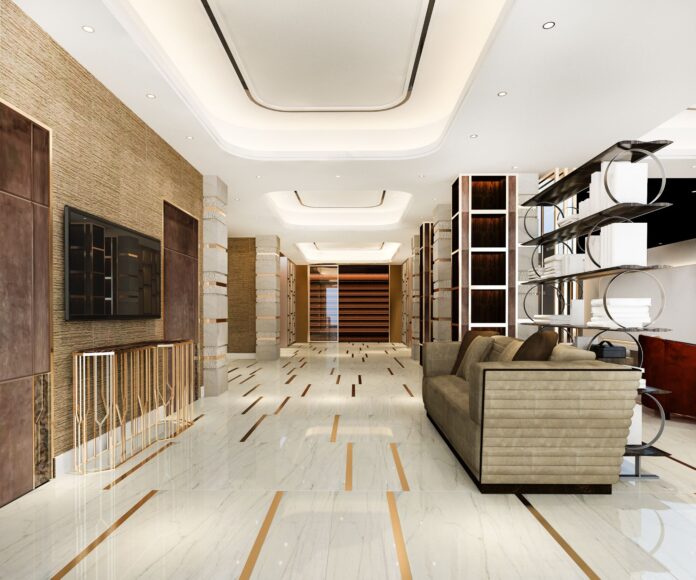In today’s world, the desk is no longer just a functional piece of furniture; it’s a reflection of personal style, productivity needs, and even comfort. Whether you’re working from home, crafting, gaming, or designing, the countertop you choose for your desk plays a pivotal role in your workspace. Desk countertops come in a variety of materials, sizes, and finishes, each offering unique benefits and design possibilities.
This comprehensive guide will help you navigate the world of desk countertops, ensuring you make the best choice for your space and needs.
Why Desk Countertops Matter
1. Functionality
A good desk countertops must meet the functional requirements of your workspace. Whether you need a scratch-resistant surface for crafting or a heat-resistant option for electronics, the material and design directly impact usability.
2. Aesthetic Appeal
Your workspace should inspire productivity and creativity. Desk countertops can enhance the look of your office or study area, making it a space where you want to spend time.
3. Durability
Investing in a durable countertop ensures your workspace will stand the test of time. Certain materials can withstand daily wear and tear better than others, reducing maintenance needs and repair costs.
Popular Materials for Desk Countertops
1. Wood Countertops
Wood is a timeless and versatile material for desk countertops.
- Aesthetic Appeal: Offers a warm, natural look that complements both traditional and modern interiors.
- Customization: Available in various wood types like oak, walnut, and maple, and can be stained or finished to match your style.
- Durability: With proper care, wood is highly durable, although it may require regular sealing to protect against scratches and moisture.
Wood countertops are particularly popular for home offices and creative workspaces due to their inviting and organic feel.
2. Laminate Countertops
Laminate is a budget-friendly and highly customizable option for desk countertops.
- Cost-Effective: Affordable without sacrificing style.
- Wide Variety: Comes in countless colors, patterns, and textures, mimicking materials like wood, stone, or concrete.
- Ease of Maintenance: Resistant to stains and scratches, making it low-maintenance.
Ideal for students or casual workspaces, laminate countertops provide a practical and stylish option without breaking the bank.
3. Quartz Countertops
Quartz is a premium material that adds sophistication to any workspace.
- Durability: Resistant to scratches, stains, and heat, making it ideal for heavy usage.
- Appearance: Provides a sleek, polished look with consistent patterns and colors.
- Maintenance: Non-porous and easy to clean, requiring little upkeep.
Quartz countertops are an excellent choice for executive desks or professional workspaces where durability and elegance are priorities.
4. Butcher Block Countertops
Butcher block countertops offer a warm, natural aesthetic similar to wood but with a unique edge.
- Craft Appeal: Perfect for artists, crafters, or anyone seeking a workspace that can double as a creative zone.
- Surface Feel: Smooth yet sturdy, ideal for writing, sketching, or assembling projects.
- Eco-Friendly Options: Often made from reclaimed or sustainable wood.
Regular maintenance, including oiling, is required to keep butcher block countertops in top condition.
5. Glass Countertops
For a modern, minimalist workspace, glass countertops are a striking choice.
- Sleek Look: The reflective surface creates a clean, contemporary feel.
- Customization: Available in frosted, tinted, or clear finishes.
- Hygiene: Easy to clean and resistant to stains.
Glass countertops are best suited for light usage, as they can scratch or crack under heavy impact.
6. Concrete Countertops
Concrete offers a rugged, industrial look that’s growing in popularity for desk countertops.
- Customization: Can be stained, polished, or textured for a unique finish.
- Durability: Extremely strong and long-lasting.
- Heat Resistance: Ideal for electronics-heavy workspaces.
Concrete is a heavier material and may require a sturdy desk frame for support.
Design Considerations for Desk Countertops
1. Size and Dimensions
Choosing the right size is crucial for creating a functional workspace.
- Width: Ensure the countertop is wide enough to accommodate your work essentials, such as a computer, monitor, or crafting tools.
- Depth: Standard desk depth is around 24-30 inches, but adjust based on your specific needs.
- Height: Pair your countertop with a desk frame or legs that provide a comfortable height (usually 28-30 inches for seated desks).
2. Edge Profiles
The edge profile of a countertop can impact both aesthetics and comfort.
- Straight Edge: A clean, modern look ideal for minimalist workspaces.
- Rounded Edge: Softer and safer, especially in households with children.
- Beveled Edge: Adds a touch of elegance and sophistication.
3. Color and Finish
The color and finish of your countertop should align with the overall design of your workspace.
- Neutral Tones: White, gray, or beige countertops provide a clean and versatile backdrop.
- Bold Choices: Vibrant colors or unique patterns make a statement in creative spaces.
- Matte vs. Glossy: Matte finishes reduce glare, while glossy finishes add a polished look.
Customization Options
1. Built-In Features
Modern desk countertops can incorporate features like:
- Cable Management: Built-in holes or channels for organizing wires.
- Integrated Storage: Drawers or shelves below the countertop.
- Pop-Up Power Outlets: For charging devices conveniently.
2. Modular Designs
Modular desk countertops allow you to create a flexible and adaptable workspace. Add or remove sections as needed to suit changing requirements.
3. Personalized Details
From engraved initials to custom-cut shapes, adding personal touches to your countertop makes it truly unique.
Where to Use Desk Countertops
1. Home Offices
For remote workers, a durable and aesthetically pleasing countertop can boost productivity and comfort.
2. Creative Studios
Artists, designers, and crafters benefit from spacious, durable surfaces that support their tools and materials.
3. Gaming Stations
Gamers can opt for countertops with built-in lighting, cable management, and a smooth surface for mouse movement.
4. Shared Workspaces
In co-working environments, multi-person desks with durable countertops enhance functionality and collaboration.
Care and Maintenance Tips
Proper care ensures your desk countertop remains functional and visually appealing:
- Daily Cleaning: Use mild soap and water for regular cleaning. Avoid abrasive cleaners.
- Protect the Surface: Use coasters, desk pads, or cutting mats to prevent scratches and stains.
- Seal as Needed: Materials like wood and concrete may require sealing to maintain durability.
- Avoid Excess Weight: Don’t overload the desk with heavy objects that could warp or damage the countertop.
Conclusion
Desk countertops are more than just work surfaces—they’re an essential part of creating a productive, comfortable, and inspiring workspace. From durable quartz and rustic butcher block to sleek glass and versatile laminate, there’s a material to suit every style and need. By considering factors like size, material, and customization options, you can design a desk that enhances both your workflow and the aesthetics of your space.
Investing in the right desk countertop ensures that your workspace not only functions efficiently but also becomes a place where you’re inspired to work, create, and succeed. Whether for a home office, a creative studio, or a gaming setup, the perfect countertop awaits to elevate your environment.




